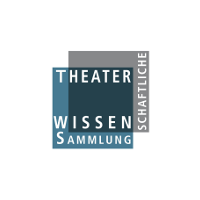Between the Images of the New German Cinema: »Uliisses« and the State of Things around 1980
In the history of New German Cinema, Werner Nekes plays a subordinate role at best. And this in a literal sense, since the common film-historical narratives usually attribute his films, if they appear in them at all, to what Alexander Kluge once described as the »underground history« of New German Cinema: the experimental underground as a parallel universe beyond the general public, but also as a breeding ground for forms of aesthetic innovation and media reflection from which the movement was able to draw its energy.
A differentiated examination of Werner Nekes' cinematic œuvre in the context of New German Cinema has so far been lacking. Yet both the course of his cinematic œuvre and the formal and thematic accentuations that are made in it certainly show a certain affinity to those that characterize our image of New German Cinema: After short experimental works, Nekes also ventures into longer forms of narrative, essayistic or documentary film, receiving awards at international festivals and teaching assignments at art and film schools. At their core, his films pursue concerns that are characteristic of New German Cinema as a whole: The dissolution of genre boundaries, the recourse to literature and art, the interest in outsiders and underdogs, passages and non-places in society, the turn to history and myth, the exploration of the connection between perception and the formation of consciousness, not least the theoretical reflection of one's own media constitution.
In the form of an archaeological cross-section, a film-historical narrowing with an open outcome, I would like to place the key and threshold film Uliisses (1980-82) in a constellation with canonical works of New German Cinema made at the same time, such as Helma Sanders-Brahms' Deutschland bleiche Mutter, (1979/80), Alexander Kluge's Die Macht der Gefühle (1981-83), Ulrike Ottinger's Freak Orlando (1981), Harun Farocki's Etwas wird sichtbar (1980-82), Wim Wenders' Der Stand der Dinge (1981/82) or Herbert Achternbusch's Das Gespenst (1982). The aim of this kaleidoscopic collision arrangement would be to shed light on the question of how close Nekes came to the New German Cinema with Uliisses; and why it may be that the film, seen in this light, still leads a shadowy existence. (Translation TWS)
Biography
Prof. Dr. Michael Wedel is Professor of Media History at the Film University Babelsberg KONRAD WOLF in Potsdam and co-speaker of the research group »Cinepoetics - Poetologies of Audiovisual Images« at the Free University of Berlin. From 2005 to 2009 he was Assistant Professor of History and Theory of Media and Culture at the University of Amsterdam, from 2011 to 2014 Scientific Director of the Filmmuseum Potsdam.
Publications include among others Filmgeschichte als Krisengeschichte. Schnitte und Spuren durch den deutschen Film (Bielefeld 2011); Körper, Tod und Technik. Metamorphosen des Kriegsfilms (mit Thomas Elsaesser, Konstanz 2016); „So etwas Ähnliches wie die Wahrheit“. Zugänge zu Thomas Harlan (Hg. mit Jesko Jockenhövel, München 2017); Ort und Zeit. Filmische Heterotopien von Hochbaum bis Tykwer (Berlin/Boston 2020); Die „Filmkritik“. Eine Zeitschrift und die Medien (Hg. mit Rolf Aurich, München 2024). (Translation TWS)
